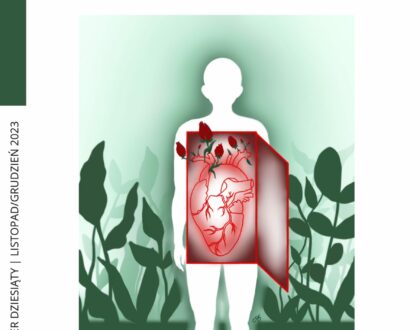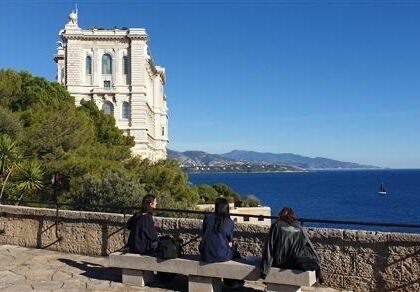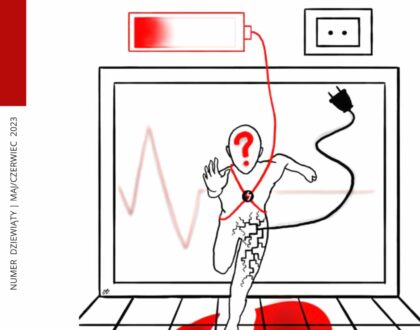Translation Competition – results
The winner of the Translation Competition was Julia Laurosiewicz from grade 1A pre DP for translating a fragment of Delphine de Vigan’s novel “No et moi” from French.
Distinctions were given to Maksymilian Remiszewski from grade 1B pre DP, Valeriia Zaozerska from grade 1A pre DP, Maria Zbarska from grade 7B and Natan Adamczyk from grade 8A. The winners translated texts from 3 different languages: English, French and Spanish.
We are glad that more than 20 translations have been submitted, and that works in Spanish and French are becoming more and more popular.
The jury composed of: Renata Dziura, Aleksander Jarnicki, Justyna Plachta, Iwona Kochman, Agata Szaryńska-Szlaz and Marta Torres appreciated the winner’s linguistic sense and her high translation efficiency and precision as well as a knack for the wriiten word.
All awarded works were characterized by interesting translation solutions. Students’ work on difficult and often demanding literary texts was also appreciated. A special guest of the jury was a well-known translator, poet, novelist and literary critic, Mr. Adam Pluszka. He translated e.g. Stefan Themerson, Helene Deutsch, Esther Woolfson, Johnny Cash and Sue Townsend. Our expert appreciated the work of our students, among other things, for their critical approach to the text. He also added that the use of a wide range of translation aids in the work of a translator is appropriate, but the most important thing is one’s own intuition and linguistic sense, as well as being faithful to the author’s text.
These features can be seen in the works of our students.
Congratulations to our wonderful young translators!!!
A fragment of French prose for a translation competition
Je ne pouvais pas rester, mon père m’attendait, je ne savais pas comment lui dire au revoir, s’il fallait dire madame ou mademoiselle, ou si je devais l’appeler No puisque je connaissais son prénom. J’ai résolu le problème en lançant un au revoir tout court, je me suis dit qu’elle n’était pas du genre à se formaliser sur la bonne éducation et tous ces trucs de la vie en société qu’on doit respecter. Je me suis retournée pour lui faire un petit signe de la main, elle est restée là, à me regarder partir, ça m’a fait de la peine parce qu’il suffisait de voir son regard, comme il était vide, pour savoir qu’elle n’avait personne pour l’attendre, pas de maison, pas d’ordinateur, et peut-être nulle part où aller.
Le soir au dîner j’ai demandé à ma mère comment de très jeunes filles pouvaient être dans la rue, elle a soupiré et elle a répondu que la vie était ainsi : injuste. Pour une fois je me suis contentée de ça, alors que les premières réponses sont souvent des esquives, il y a longtemps que je le sais.
J’ai revu la pâleur de son teint, ses yeux agrandis par la maigreur, la couleur de ses cheveux, son écharpe rose, sous l’empilement de ses trois blousons j’ai imaginé un secret, un secret planté dans son cœur comme une épine, un secret qu’elle n’avait jamais dit à personne. J’ai eu envie d’être près d’elle. Avec elle. Dans mon lit j’ai regretté de ne pas lui avoir demandé son âge, ça me tracassait. Elle avait l’air si jeune.
En même temps il m’avait semblé qu’elle connaissait vraiment la vie, ou plutôt qu’elle connaissait de la vie quelque chose qui faisait peur.
Delphine de Vigan, No et moi
The winning translation
Nie mogłam zostać, mój ojciec na mnie czekał, nie wiedziałam jak się z nią pożegnać, czy powinnam była powiedzieć Pani czy Panno, czy może powinnam była zwrócić się do niej No, skoro już znałam jej imię. Rozwiązałam ten problem rzucając krótkie do widzenia, powiedziałam sobie, że nie jest ona z tych, co mogą poczuć się dotknięci, jeżeli chodzi o dobre wychowanie i te wszystkie aspekty życia społecznego, które musimy szanować. Odwróciłam się, by jej pomachać, ona została tam, patrząc jak się oddalam. Zrobiło mi się przykro, wystarczyło spojrzeć na jej wzrok, jaki był pusty, żeby się domyślić, że nie ma ona nikogo kto na nią czeka, nie ma domu, komputera i może też nie ma dokąd pójść. Wieczorem przy kolacji spytałam się mojej matki w jaki sposób bardzo młode dziewczyny lądują na ulicy, ona westchnęła i odpowiedziała, że życie już takie jest: pełne niesprawiedliwości. Po raz pierwszy byłam zadowolona z odpowiedzi, zwykle odpowiedzią są uniki, od dawna o tym wiem. Wróciła mi na myśl bladość jej cery, jej oczy powiększone przez chudość jej ciała, kolor jej włosów, jej różowy szalik, pod stosem trzech kurtek wyobraziłam sobie sekret, sekret w jej sercu kujący niczym cierń, sekret nie wyjawiony nikomu. Chciałam być blisko niej. Z nią. Usypiając żałowałam, że nie spytałam się o jej wiek, udręczało mnie to. Wyglądała tak młodo. W tym samym czasie wydawała się naprawdę znać życie, lub przynajmniej, wydawało się, że wiedziała o życiu coś co napawało strachem.
Delphine de Vigan, No et moi
Translation: Julia Laurosiewicz
Recommended Posts

10th issue of Gazeta Monneta
24/11/2023

High school students visit France
21/11/2023

Gazeta Monneta – 9th issue
31/05/2023

